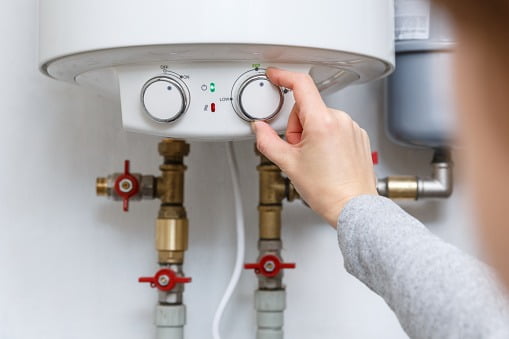The right boiler, installed and maintained by certified engineers, will provide years, if not decades of safe heating. However, if there is a problem that needs urgent repair, the most obvious signs will be the ones you can see, hear or smell.
Homeowners know to pay attention to the pilot light of an older boiler, pay attention to the boiler pressure gauge on their particular model or listen for rattles, bangs and odd noises. However, in some cases it is less about what you can hear but what you can smell.
Boilers should not have any particularly noticeable smells, and so if you can trace a smell to your boiler, it is a sign that it will need some kind of repair or flush in the near future.
However, some smells are far more concerning than others, and with that in mind, here are some boiler smells that could be a sign of a potential emergency.
Rotten Egg
The most potent smell you might encounter related to your boiler is also the most dangerous and requires an emergency callout as soon as possible.
It is caused by mercaptan, a gas that is typically added to natural gas to make it easier to detect and track down leaks, and has been reported to smell like sulphur or rotten eggs.
It is deeply unpleasant to smell, which makes it so effective as a way to warn people if there is a potentially dangerous gas leak in the house.
If you notice such a smell, shut off the gas supply and boiler immediately and call a qualified engineer to isolate the leak, fix the issue and ensure your boiler continues to work safely.
Melting Or Burning Plastic
Burning smells are similarly a very clear sign that there is a problem, although it may not be easy to specifically identify its cause.
In some cases, a nonspecific burning smell could be caused by debris or dust contacting the metal heating coil at the heart of your boiler. This can sometimes happen, although it will usually go away after around half an hour with no lingering effects.
However, if it does not, it could be a sign that your boiler or one of its components is overheating, particularly if it smells of burning plastic.
This is often a sign of a component overworking or overheating, which not only will need a certified engineer to fix, but could also be a sign of limescale deposits building up in your central heating system.
This is similar to how a kettle with limescale will take longer to boil and could potentially break down. Whilst it can be seen anywhere, it is typically a concern in hard water areas.
Your engineer will be able to provide not only a replacement component, descale your boiler and flush your central heating system, they will also be able to provide advice for what you can do to mitigate the issue if it is likely to continue being a problem.
Damp, Mould Or General Must
There is a smell often associated with foul drains, sewage, mould and mildew which can sometimes emanate from the boiler and can be potentially dangerous in a somewhat different way to an overheating boiler or a gas leak.
Mouldy smells tend to be the result of mildew growth within certain components in the boiler or, less commonly, water damage in close proximity to the boiler itself.
This is usually caused by anaerobic bacteria, which break down compounds in water and release a foul smell.
This is different from the bacteria that causes legionnaires’ disease, which does not give off any kind of smell, but regardless it can be unpleasant and potentially harmful if you drink hot water that comes into contact with it.
The smell is often sulphuric, similar to the rotten egg smell that signifies a gas leak, or it can smell musky, stagnant or mouldy, depending on the nature of the bacterial infection.
A qualified engineer needs to use a biocide flush to wipe out the infection using chlorine dioxide, which is a dedicated cleaning agent that not only gets rid of the bacteria but often stops it from returning. If there are any components affected they will also be replaced.
Ensuring there is plenty of ventilation around your boiler, that it is running at a high enough temperature to kill most bacteria and that the boiler is regularly checked and serviced are the best way to remove the smell and stop it from affecting you again.

